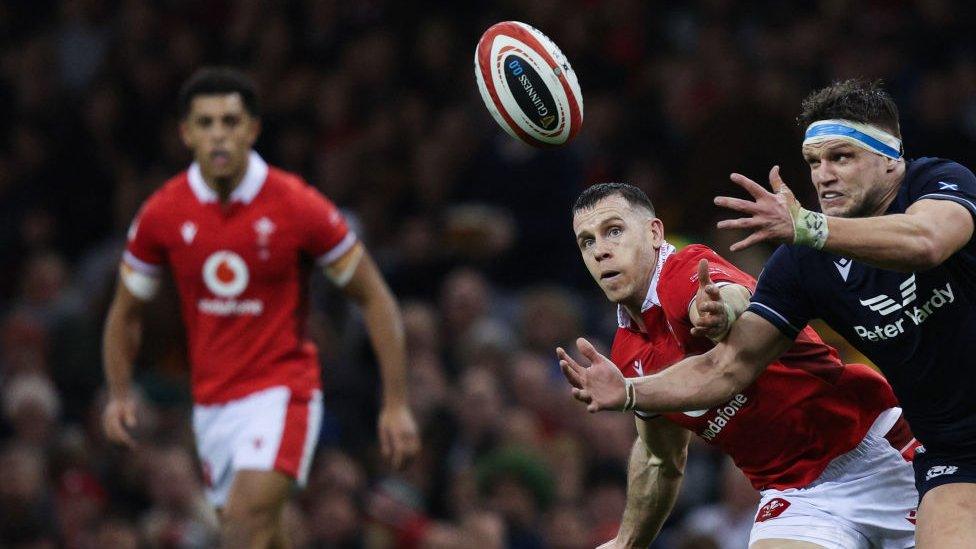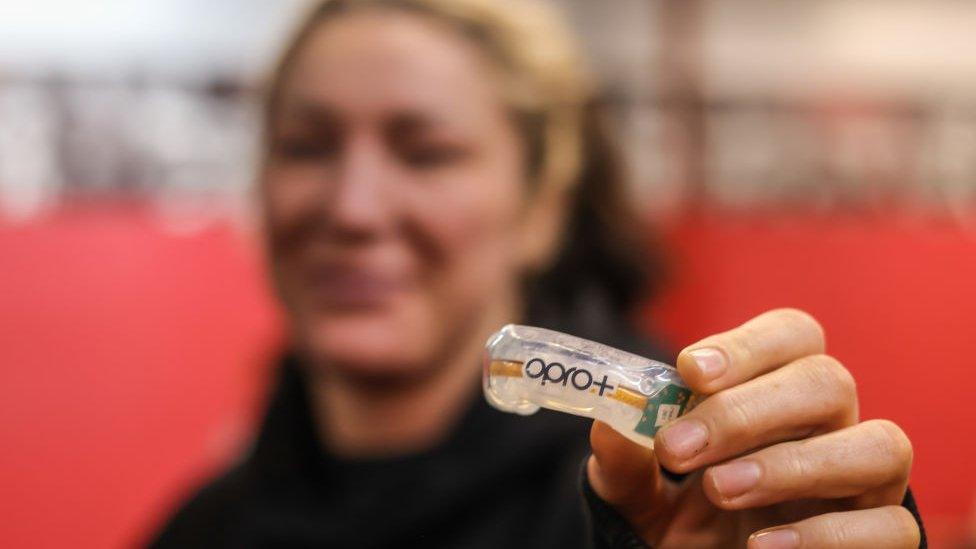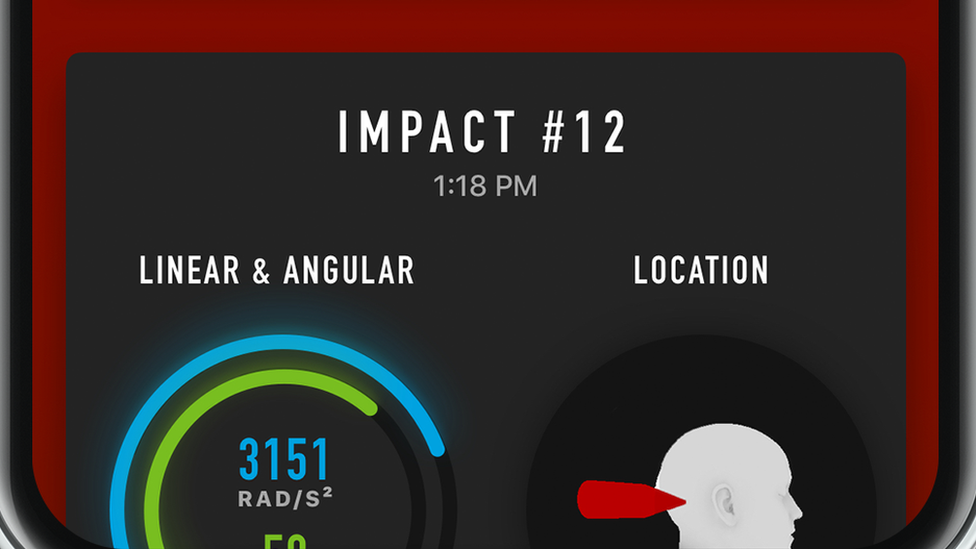Smart Mouthguards: What are they, and how can they help rugby players?
- Published
- comments

George Turner (right) was taken off the pitch during Scotland's Six Nations game this weekend against France
Have you ever heard of a smart mouthguard?
During a Six Nations match this weekend, Scotland's George Turner was taken off of the pitch because he needed a medical expert to look at his head.
But it wasn't just after he'd been hurt, it was because a special mouthguard he was using created an alert telling the medical team to investigate.
Smart mouthguards are worn like normal ones, but they store digital data saying how hard someone has been hit during contact games like rugby.
Rugby is a contact sport, and it can lead to injuries, so experts are trying to make sure players don't have lasting damage, and more rules have been put in place to keep rugby players safe.
Can contact sports be dangerous?
13-year-old Mateo found out more about injuries in rugby for Newsround. (Report is from 2021)
If you're under 14 and you play rugby in your local club, you won't be doing tackles above the waist. This is because there is evidence that rugby players could develop things like concussion from hitting their head too hard during tackles.
A concussion is a type of head injury caused by your brain having a shock.
Elite players, like England, Wales, Scotland or Ireland rugby international teams, don't have those same protections.
Rugby's governing bodies in the UK are facing an increasing amount of legal cases with almost 300 ex-rugby players suing over brain injuries.
How does a 'smart mouthguard' work?

Smart mouthguards are also being used by people who do other contact sports, like boxing
The smart mouthguards have sensors inside of them which detect how hard someone is being hit.
They also add up how many times someone has been in contact.
If it goes above a certain level of contact, or if someone has been hit lots of times, the mouthguard alerts the medical team, who then pull the player to the side to be checked for head injury.
The mouthguards have already been in use in the men's and women's Premiership in England.
They are now also being used in the Six Nations rugby tournament to test if players are at risk of being injured.

The mouthguard technology was made by a company called Prevent Biometrics, who worked with doctors and sports scientists
Dr Gregory Tierney, from Ulster University, worked with World Rugby in reviewing the performance of the mouthguards to make sure they are accurate and reliable.
"We have been getting bucket loads of data from the men and women's rugby Premiership over in England. From that we can investigate and try to understand what is that link between head impact severity and the injury risk."
"That is a really big advance moving forward in the sport," he added.
Katie-Anne McCallion, a rugby coach at Belfast Met, said players at an amateur level could also benefit from using smart mouthguards.
"From grassroots to professional levels, everyone is prone to a head injury. If they're seen to work they really should consider implementing them in grassroots rugby too," she said.
